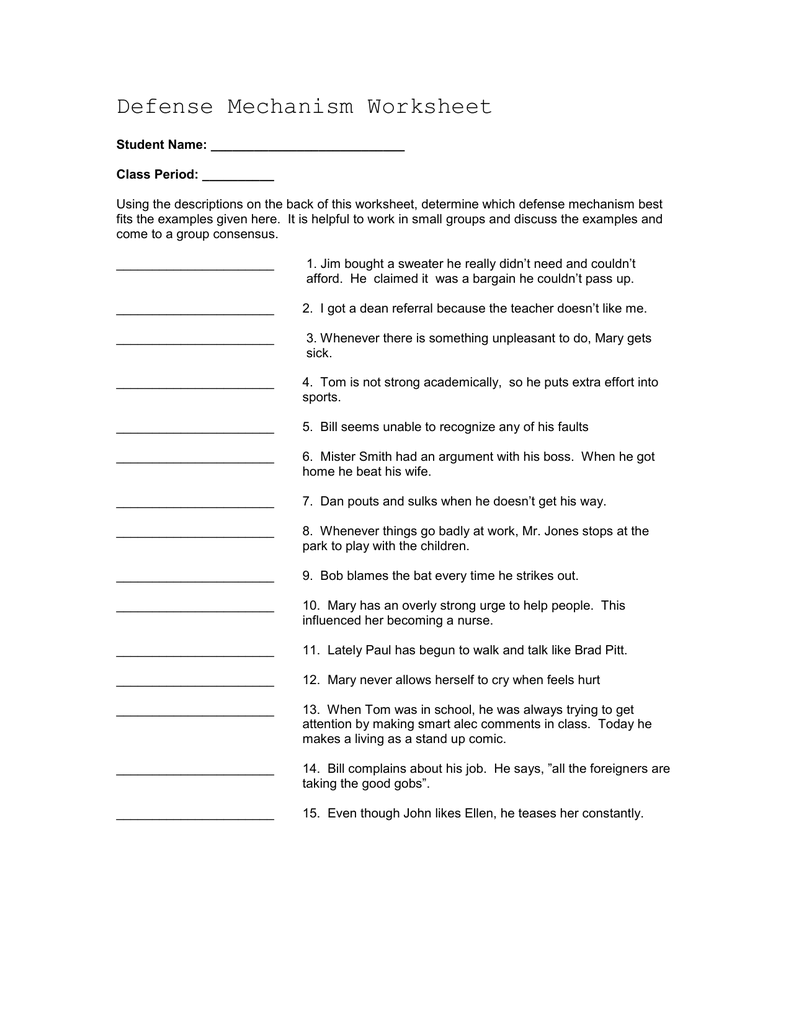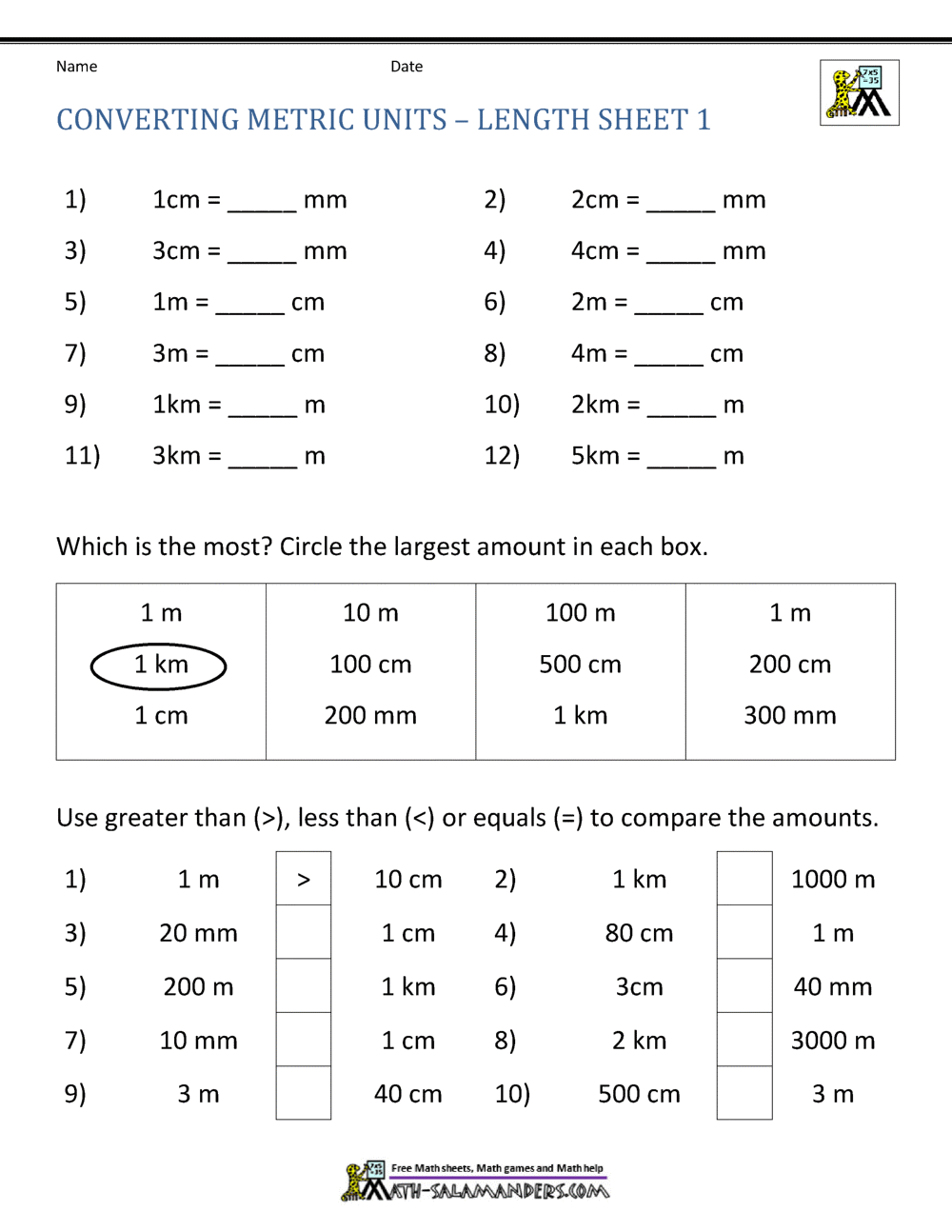Defense Mechanisms Worksheet: Understand Your Mind's Defense Reactions

The intricate network of our psyche often employs defense mechanisms to manage feelings of anxiety or conflict. By understanding these mental strategies, we can develop a greater awareness of our internal reactions, leading to more mindful and productive life experiences. In this comprehensive worksheet, we will explore various defense mechanisms, their manifestations, and how they shape our behavior.
What Are Defense Mechanisms?

Defense mechanisms are psychological strategies that individuals unconsciously employ to protect themselves from feelings of anxiety or guilt, which stem from conflicts between internal impulses or external situations. Here’s a quick rundown:
- Repression: Pushing uncomfortable thoughts into the subconscious mind.
- Denial: Refusing to accept the truth or reality of a situation.
- Projection: Attributing one’s own undesirable thoughts or emotions onto someone else.
- Displacement: Redirecting an emotional reaction from one person or thing to another, usually a safer or less threatening target.
- Rationalization: Creating false but acceptable explanations for one’s actions or feelings.
- Reaction Formation: Expressing the opposite feeling or behavior to what one is actually experiencing.
- Sublimation: Channeling unacceptable impulses into socially acceptable activities.
- Intellectualization: Focusing on the intellectual components of a situation, detaching from emotions.
🔍 Note: While defense mechanisms can provide temporary relief, over-reliance on them can prevent personal growth and understanding.
How to Identify Your Defense Mechanisms

To truly understand how defense mechanisms operate within us, we must practice introspection:
- Self-Reflection: Take time to reflect on your reactions to stressful events. What are your immediate thoughts?
- Track Patterns: Notice recurring behaviors or thoughts that might indicate a particular defense mechanism.
- Seek Feedback: Sometimes, getting insights from friends, family, or therapists can shed light on our patterns.
🔍 Note: Identifying defense mechanisms is the first step towards managing them, not necessarily eliminating them.
Examples of Defense Mechanisms at Work

Here are real-life examples that illustrate how defense mechanisms manifest:
| Mechanism | Scenario | Interpretation |
|---|---|---|
| Denial | A smoker ignoring the health warnings about smoking-related diseases. | The individual is protecting themselves from the anxiety of potential illness by refusing to acknowledge the risk. |
| Projection | A person who is dishonest accuses others of dishonesty. | By projecting their own fault onto others, they manage their guilt or shame. |
| Sublimation | Someone with aggressive tendencies takes up boxing as a competitive sport. | Here, an individual channels potentially harmful impulses into a productive and socially accepted activity. |

Managing Your Defense Mechanisms

Managing defense mechanisms involves developing emotional intelligence and coping strategies:
- Awareness: Recognize when you’re using a defense mechanism.
- Acknowledgment: Accept that defense mechanisms are a part of the human condition.
- Alternative Responses: Consider other, more constructive responses to the situations triggering defense mechanisms.
- Therapy: Professional help can offer insights and techniques to better manage these reactions.
- Expressive Writing: Journal about your feelings to process and understand them better.
🔍 Note: The goal is not to suppress these natural reactions but to find healthier ways to cope with the underlying issues.
In sum, defense mechanisms serve as a protective barrier for our minds, but they are not without consequences. By recognizing these subconscious strategies, we can gain a deeper understanding of ourselves, and through this understanding, strive for healthier coping mechanisms. As we learn to navigate our internal reactions, we open the door to personal growth, emotional resilience, and ultimately, a more fulfilling life.
Are defense mechanisms always harmful?

+
Not necessarily. While some defense mechanisms can hinder personal growth, others like sublimation can lead to positive outcomes by channeling energy into productive pursuits.
Can defense mechanisms change over time?

+
Yes, as individuals grow and experience different life stages, their defense mechanisms can evolve or shift in response to new challenges and personal development.
How can I tell if I’m using a defense mechanism?

+
Signs include feelings of avoidance, unexplained behaviors, or reactions that seem out of proportion to the situation. Reflect on your emotions and seek feedback from others.
Can therapy help with managing defense mechanisms?

+
Yes, therapy can provide tools and strategies for recognizing and managing defense mechanisms in a healthy way, leading to improved mental health and relationships.



